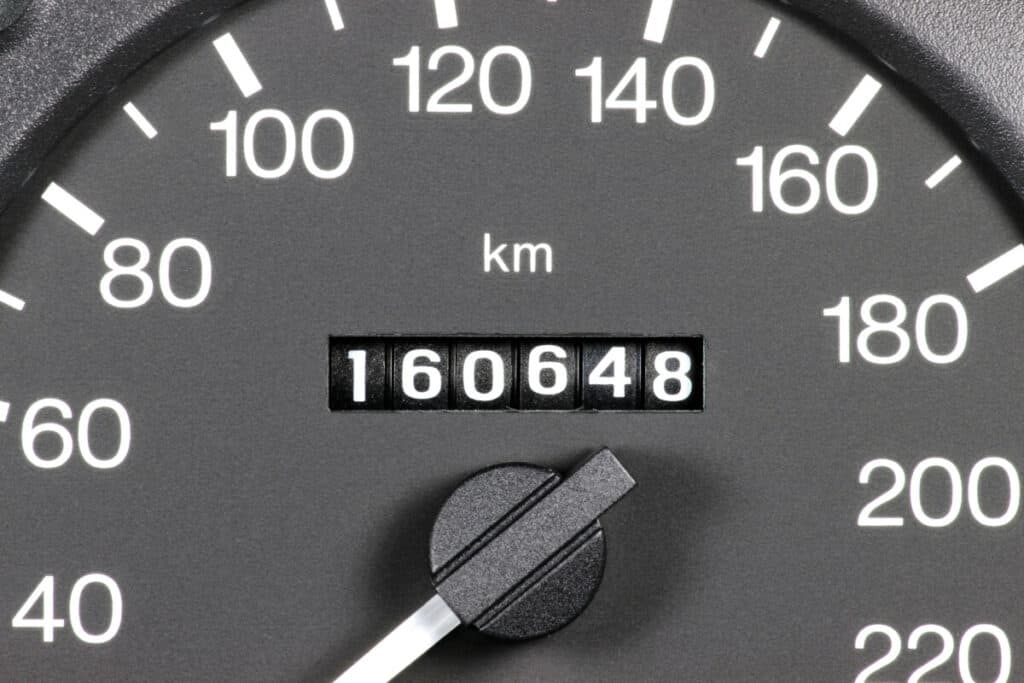Ford Explorer: Will It Last 100k, 200k, 300k miles?
The Ford brand of cars is a pretty well-known brand, selling a variety of different cars, most notably SUVs and trucks. The most common question especially when in the market for a car is whether or not your potential car is going to last. And it largely depends on the make, model, and year of the car.

Will A Ford Explorer Last 100k Miles?
Ford Explorers last somewhere between 100k miles and 200k miles. Some last for 115k and others make it to 200k, especially with older models. With a few specific years and models, there have been several reported manufacturing issues that have seriously decreased their ability to last long.
Each Ford Explorer has a few different things that can impact the health of the car and its longevity, such as mileage, wear and tear, maintenance upkeep and issues, and the year of the Ford Explorer. Here are a few you should know about.
Year and Mileage
The year of the car has the most significant impact on how well a car lasts. That, and the mileage the car gets will also show how soon a car is likely to start having to have major systems repaired or replaced.
How long a Ford Explorer lasts greatly depends on the car’s year, the mileage it gets, and how well cared for it is. A few years of cars have had greater issues than others, and those end up being more maintenance issue-based than mileage-based.
Something all car owners will learn in their own time is that the mileage on a car will greatly impact both the selling value and how long it lasts simply because a lot of car brands have a certain mileage that their car can hit before it gives up and starts falling to pieces.
This is different for every brand; some are built for lasting longer and others aren’t.
The Ford brand is around the middle of this equation, giving us some pretty reliable cars that work well for a variety of things, but also don’t last quite as long as we might hope, especially since cars become generational as they are passed from parent to child.

Ford Explorers specifically have around four or five bad years. The models from each of these years have not performed as well as other Fords out there. 2002-2006 are less than stellar.
The 2006 Ford Explorer has issues with the transmission, even when it doesn’t have many miles on it.
The owners of 2011-2013 Ford Explorers reported several issues. Each of them compounded until it started to cost more to repair the vehicle than it would cost to get a new one. One of the more recent Ford Explorers is the 2020 model and it has some major issues, resulting in a few recalls.
The issue of mileage might also be impacted by the car’s year. Some of the older models of Ford Explorers, such as the ’96 model can last up to and perhaps even beyond 200k miles.
The older models seem to have a bit of an easier time lasting longer, whereas the newer brands often don’t get past 150k miles without things starting to go wrong.
Frequent Maintenance Issues
There are several different issues that owners of Ford Explorers will run into, and each one comes with its own brand of trouble the older the vehicle is.
A variety of these issues just end up worse for the car as time goes on and many disgruntled Ford Explorer owners shared that they might’ve fixed a problem once, only to have to fix it again a year or two later.
Some of the most common problems that will arise center in the transmission, specifically for the year 2006. The Ford Explorer ran into several issues like banging and clanking when shifting, trouble when shifted to drive, and more.
Transmissions are one of the hardest parts in a car to find that works well after several years, but the 2006 Explorer didn’t work well with its transmission regardless of how old the car got.
The problems with the transmissions even went so far as to result in complete failure.
Another problem people run into frequently is rough idling and engine stalling, especially in older models of the car. This isn’t too much of a bad fix and if the mileage is still on the lower side, the Explorer still has a few more years of life left in it yet.
Some vehicle owners have run into the problem of their A/C unit not working properly in a variety of different years. Usually, it’s something to do with the coolant.

The most recent issues that seem to be prevalent are from the 2020 Ford Explorer. The 2020 Explorer has had several recalls on a variety of different issues and it’s been on select models as well.
There was the possibility of fuel leakage, which would cause a fire. Faulty wiring was discovered with the airbags as well.
This issue was a liability in that it would potentially make contact with other parts inside the vehicle and cause damage. That would in turn cause failure to other parts such as the A/C belt or the harness.
A lot of the other recalls are much smaller issues than the ones already mentioned, but it puts into perspective how many things can go wrong, even when these are being recalled so soon after being put on the market.
The best thing you can do to ensure that your Ford Explorer continues to run in the best health for the longest time (regardless of year) is to take care of it.
This means changing the oil, transmission fluid, coolants, and tires when the time is right. Make sure it passes safety checks. These are all good practices to have a good functioning car.
As you drive your Explorer through rain, shine, and snow, you’re going to wear it down gradually. This means that there will be certain parts that need replacing as the car gets older.
It’s a fact of life. However, as long as you’re taking the best care of your Explorer that you can, you can count on it having a long and happy life.
Recommended Reading
- Are Ford Explorers Reliable? (Explained!)
- 9 Common Problems With Ford Explorers: A By-Generation Guide
- Ford Explorer Years To Avoid
- What are the Best Years for Ford Explorers? (Revealed!)
- What Year is the Most Reliable Ford Explorer?
- Ford Explorer: Will It Last 100k, 200k, 300k miles?
- What Used SUV Should I Avoid?
- What Ford Has the Least Amount of Problems?
